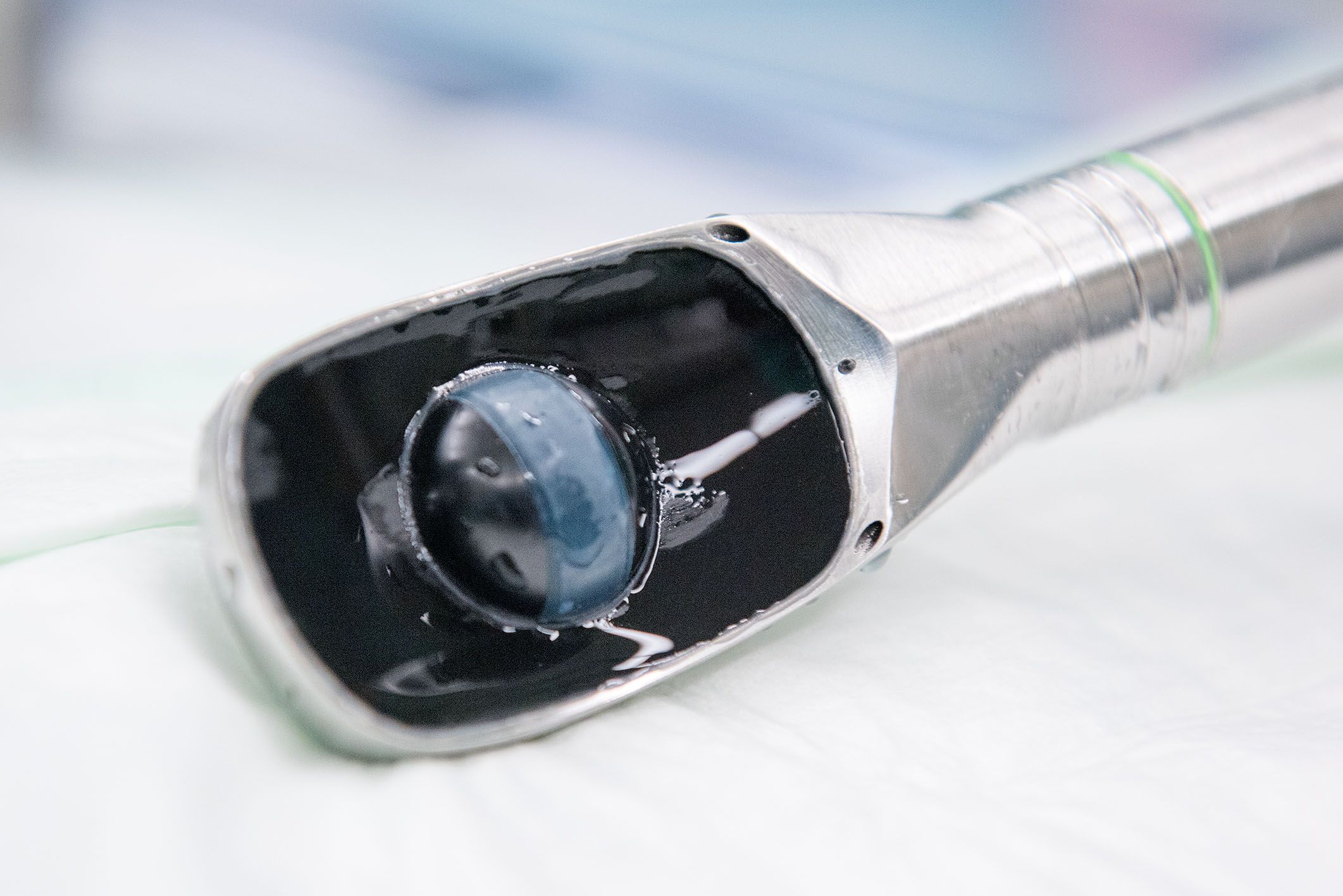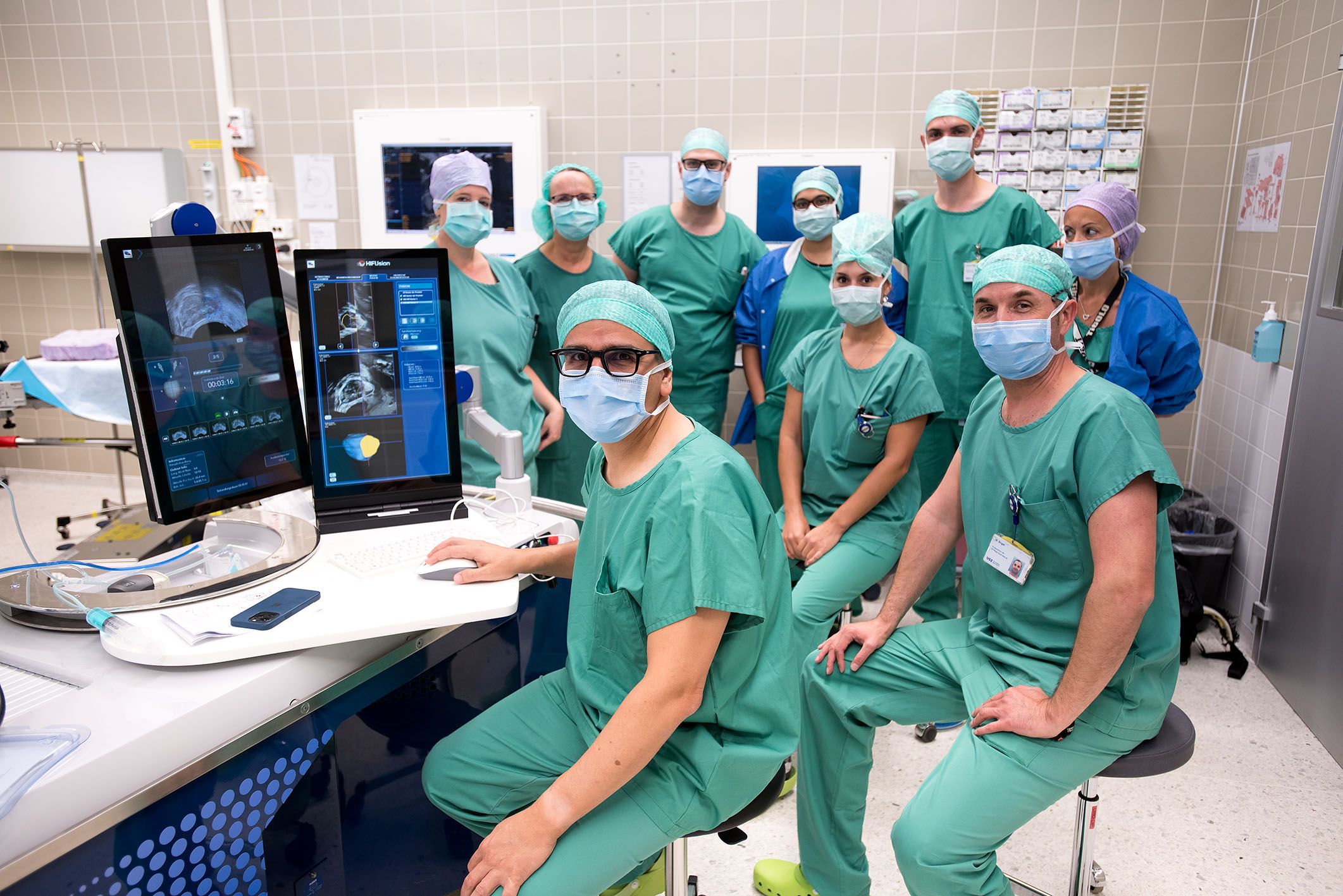How does the HIFU treatment proceed?
The procedure lasts between 30 minutes and two hours and depends on the size and spread of the prostate cancer. During the operation, the patient receives a partial anesthesia (spinal anesthesia or spinal anesthesia) or a general anesthesia. In the case of partial anesthesia, a sleeping pill is also administered so that the patient can lie relaxed and quiet.
The ultrasound probe is inserted into the bowel at the beginning of the treatment and creates a three-dimensional image of the prostate. Together with magnetic resonance imaging (MRI) images taken prior to the procedure, the result is a highly accurate image of the prostate with the tumor tissue clearly visible. The physician marks the boundaries of the prostate on the screen and determines which areas will be treated.

The HIFU device sends high-energy ultrasound waves that are directed at the prostate from the ultrasound probe in the rectum. A type of burning glass bundles the ultrasound waves so that they are directed (focused) to a point in the tumor. At this focal point, the tissue is heated to such an extent that it burns. The surrounding tissue, such as nerve structures, intestines, bladder or urethra, remains unharmed. HIFU therapy is thus a minimally invasive procedure.
What aftercare is needed?
Immediately after the procedure, a urethral catheter is necessary to allow the urine to drain properly. In some patients, a catheter is also placed through the abdominal wall into the bladder before surgery. The catheter can be removed after about three to eight days, when the prostate has healed.
Studies have shown that HIFU therapy is a very safe method. Therefore, it is sufficient to check the PSA (prostate specific antigen) every three months after treatment. Six and twelve months after therapy, respectively, an MRI and a control biopsy are recommended. The follow-up examinations can be performed at the USZ or at a hospital close to home. If prostate cancer cells reappear, HIFU therapy can be repeated six months after the first procedure.
How much does a HIFU treatment cost?
Since July 2023, HIFU therapy has been a mandatory benefit of Swiss health insurers.




